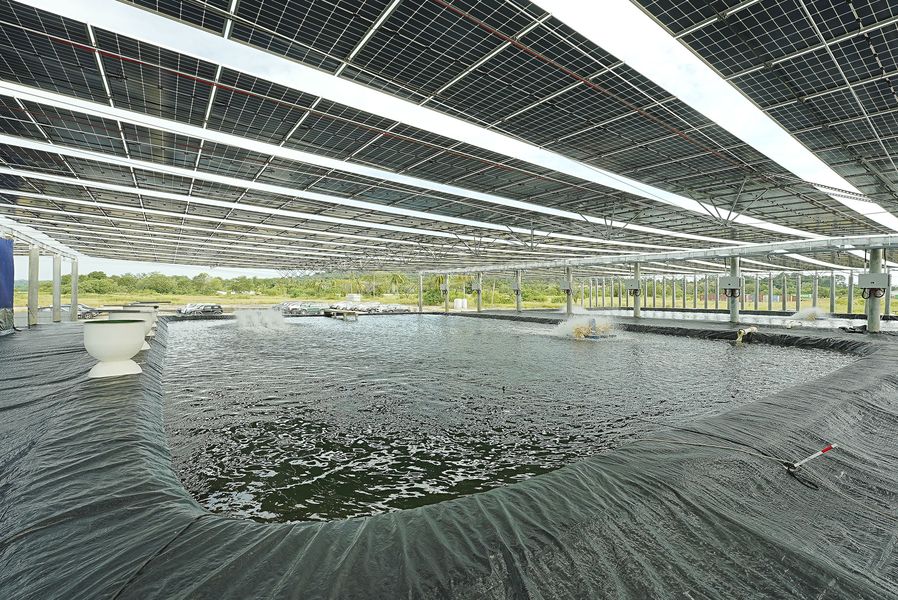FDI-backed Jets Sdn Bhd has launched what it bills as Southeast Asia’s first net-zero, solar-powered aquaculture facility in Serasa, which will use AI technology to cultivate blue shrimp.
The new facility features a 10,000 square-metre pond topped with solar panels and equipped with AI-driven systems to monitor and optimise production, covering variables such as water quality and disease prediction.
It is expected to deliver its first commercial harvest for export by the end of the year, operating with a zero-carbon footprint through AI data-driven feed management and environmental monitoring.
Jets Director Elvina Lau explained that the latest facility complements their associated supply chain in Brunei, which have been operational since 2018 and includes a hatchery and broodstock development centre.
Their fry will now be transported to their new facility, officially named the Net-Zero AquaPV Project For Next-Generation Blue Shrimp and AI Integration Hub, to grow to harvest size before final processing.
“At this facility we are integrating aquaculture, green energy and also AI; this integration is to produce organic, halal and sustainable products,” said Lau.
Jets’ holding company is DABANC Group, which is headquartered in Hong Kong, with international offices in China, the United States, and Sarawak.
Jets is an operating subsidiary of a joint venture company that has Brunei government shareholding through the Ministry of Finance and Economy’s Strategic Development Capital Fund, which co-invests in strategic ventures with foreign investors.
The Minister of Primary Resources and Tourism YB Dato Seri Setia Dr Hj Abdul Manaf Hj Metussin, said Jets’ latest project serves as a role model for forward-looking agriculture projects that combine sustainability and advanced technology to produce exports that support Brunei’s diversification.
He noted that primary food production collectively contributes 13 to 21 percent of global greenhouse gas emissions, according to the ASEAN Climate Resilience Network. Therefore, projects that reverse this trend should be prioritised.
“As the project evolves, it will also serve as a platform for continuous learning, research and refinement,” he said.
“The data-driven performance monitoring, utilising AI, will help improve yields, expand renewable energy integration, and develop a scalable model that others can learn from. The project is a clear demonstration that we can farm, and thrive, while embracing sustainability.”
The minister recently highlighted that while Brunei’s food sector has traditionally focused on domestic demand, it must also strategise to develop premium, high-value export products for the sector to reach its full potential.
Recent data show that fisheries — particularly blue shrimp — is Brunei’s leading primary food export, produced primarily by FDI companies and fetching as much as A$25 per kilogramme for the organic variety.
In 2023, fisheries exports totalled $21 million, with $16 million from blue shrimp — compared to just $3.3 million from all other agriculture and agri-food products. This was despite fisheries accounting for only $166 million out of the collective $721 million output from the agriculture, agri-food, and fisheries sector.
Source - https://www.bizbrunei.com













